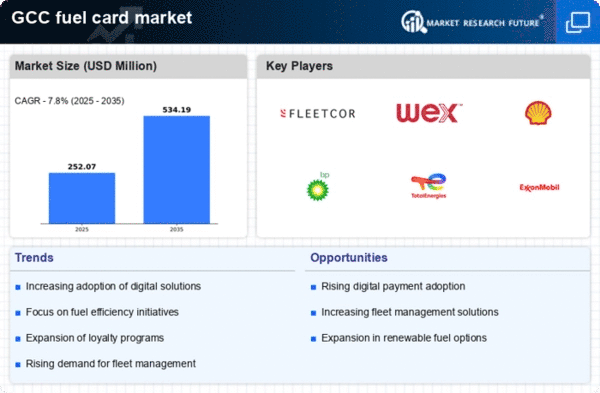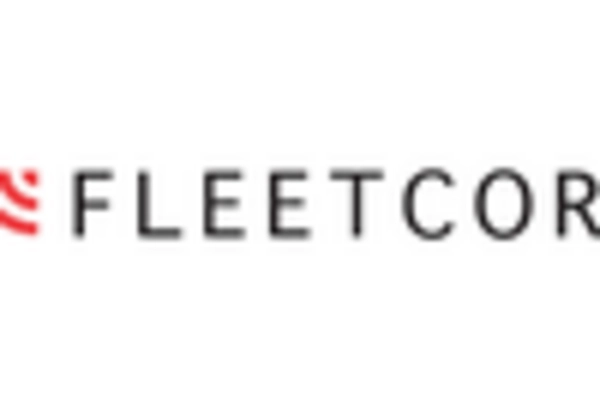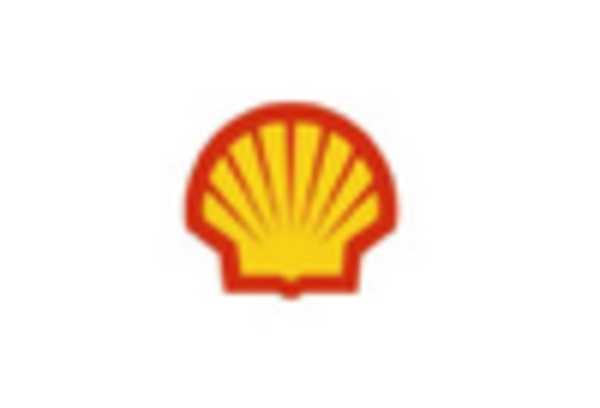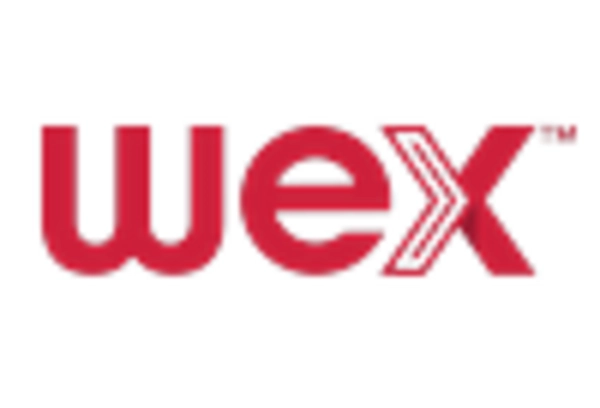Rising Fuel Prices
The fuel card market is experiencing a notable surge due to the rising fuel prices in the GCC region. As fuel costs escalate, businesses are increasingly seeking efficient ways to manage their fuel expenditures. Fuel cards provide a streamlined solution, allowing companies to monitor fuel consumption and control costs effectively. In 2025, the average fuel price in the GCC is projected to reach approximately $1.50 per liter, prompting organizations to adopt fuel cards as a means of mitigating financial strain. This trend indicates a growing reliance on fuel cards as a strategic tool for cost management in the fuel card market.
Increased Fleet Management Needs
The growing complexity of fleet management is a critical driver for the fuel card market. As businesses expand their operations, the need for efficient fleet management solutions becomes paramount. Fuel cards offer a comprehensive approach to managing fuel expenses, tracking vehicle performance, and optimizing routes. In the GCC, the number of registered commercial vehicles is expected to rise by 15% by 2026, indicating a burgeoning demand for effective fleet management tools. This trend suggests that the fuel card market will continue to thrive as companies seek integrated solutions to enhance operational efficiency.
Shift Towards Sustainable Practices
The fuel card market is witnessing a shift towards sustainable practices as businesses increasingly prioritize environmental responsibility. In the GCC, there is a growing emphasis on reducing carbon footprints and promoting eco-friendly initiatives. Fuel cards are being utilized to monitor fuel consumption patterns and identify opportunities for reducing emissions. Companies that adopt fuel cards can demonstrate their commitment to sustainability, which is becoming a crucial factor in consumer decision-making. This trend indicates that the fuel card market is likely to evolve in response to the rising demand for sustainable business practices.
Government Regulations and Compliance
The fuel card market is significantly influenced by government regulations aimed at enhancing transparency and compliance within the transportation sector. In the GCC, regulatory bodies are implementing stricter guidelines regarding fuel usage and emissions. These regulations compel businesses to adopt fuel cards that facilitate accurate reporting and compliance with environmental standards. The fuel card market is likely to expand as companies seek solutions that not only streamline operations but also ensure adherence to legal requirements. This regulatory landscape fosters a favorable environment for the growth of the fuel card market.
Technological Advancements in Payment Solutions
Technological advancements are reshaping the fuel card market, particularly in the realm of payment solutions. The integration of mobile payment technologies and contactless transactions is becoming increasingly prevalent in the GCC. This evolution enhances the convenience and efficiency of fuel card usage, allowing users to make transactions swiftly and securely. As of November 2025, it is estimated that around 40% of fuel card transactions in the region are conducted through mobile applications. This shift towards digital payment solutions is likely to drive further adoption of fuel cards, positioning them as a vital component of the fuel card market.
















